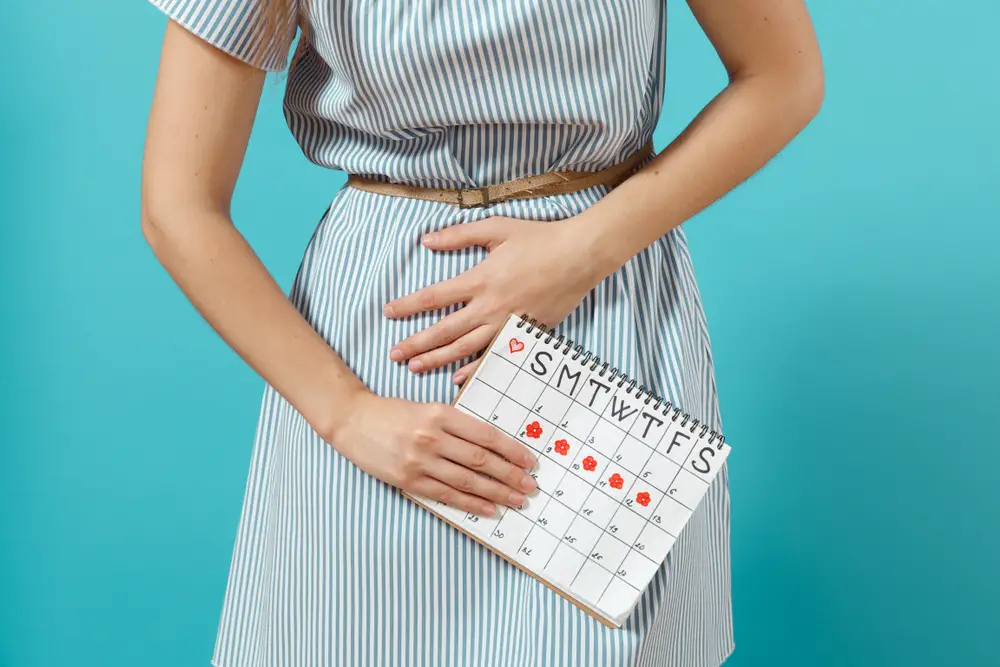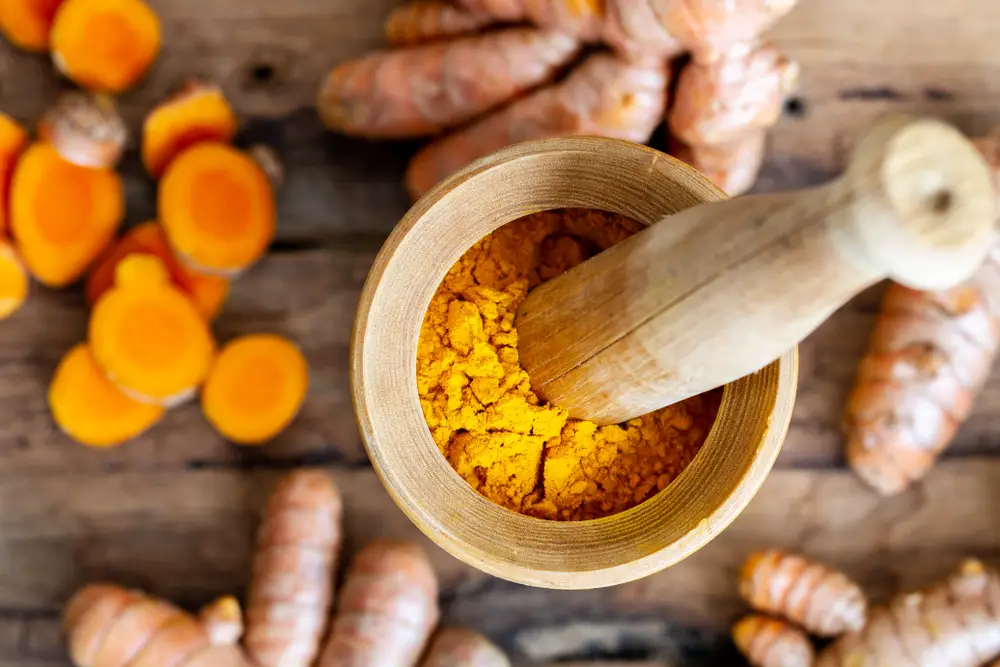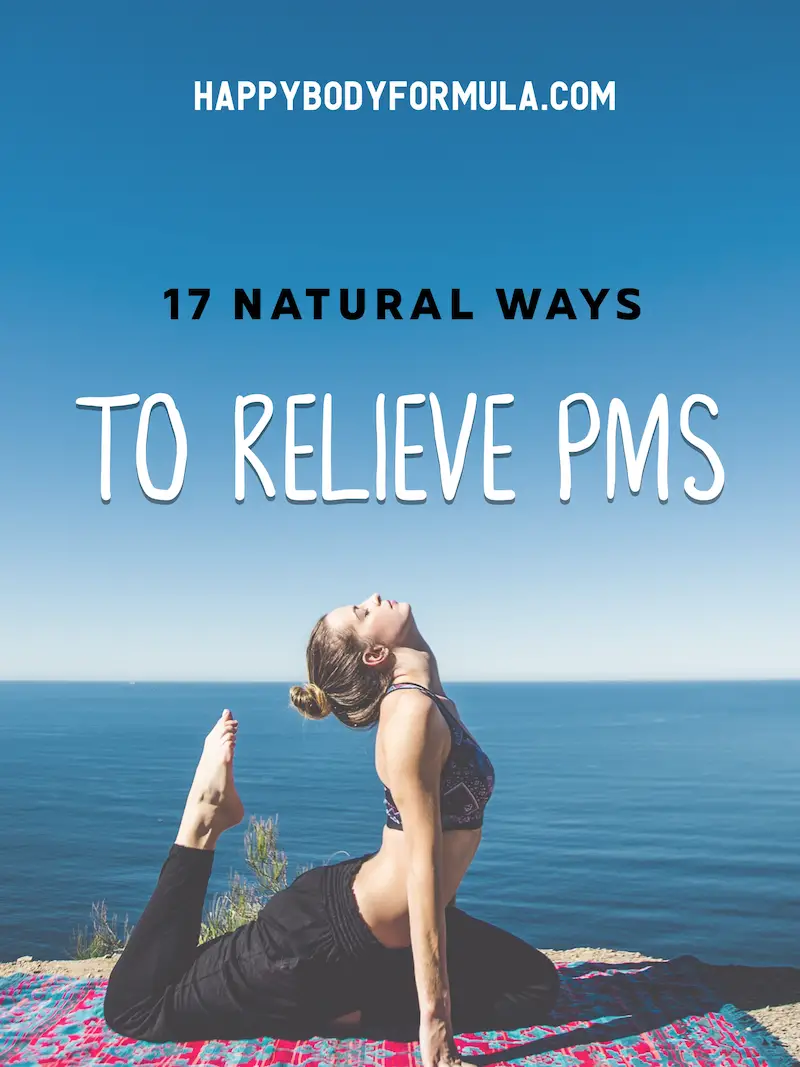
For many women, PMS is a part of life for close to 30 years. The average woman has about 450 periods in her life during the reproductive years. That’s 450 different chances to experience PMS.
Unfortunately, close to 80 percent of menstruating women experience PMS in one form or another, with half of them stating that the symptoms are so overwhelming that they interfere with daily life and the ability to function at school, work, or elsewhere.
Other statistics say that 95 percent of all women will experience PMS at one time or another in her life.
With this volume of women experiencing these problems, it makes perfect sense that they’d be on the lookout for the best natural remedies.
This article will cover the best and most proven ways to find relief for this unpleasant time of the month.
Contrary to popular opinion, PMS isn’t a required part of having a menstrual cycle, and it’s time to find some relief for yours.
[toc]
What is PMS?
PMS, which stands for premenstrual syndrome, is a hormonal condition that affects women before and during their period. Symptoms can appear as early as two weeks before the expected period and last as long as menstruation.
Some women can, therefore, experience PMS three out of every four weeks.
Symptoms of PMS
Symptoms of PMS can range from physical to emotional and psychological. They can be mild or severe or can vary day by day or cycle by cycle.
Common symptoms of PMS include:
- Mood swings
- Irritability
- Anger
- Depression
- Anxiety
- Headaches
- Insomnia
- Fatigue
- Tender breasts
- Achy joints and muscles
- Acne and skin breakouts
- Bloating
- Brain fog
- Water retention
- Hot flashes
- Low sex drive
- Digestive symptoms like heartburn, gas, or indigestion
- Constipation or diarrhea
- Stomach pains
- Uterine cramping
- Intestinal cramping
- Food cravings, typically for sweet or salty foods
Most women won’t experience all of these symptoms but might have three or four predominant ones. Others might only have one or two bad ones or several milder symptoms.
Several of these symptoms can be caused by other conditions, so if your PMS is regular and severe, it’s important to work with your doctor to rule out underlying causes or other disorders.
What Causes PMS?
Research isn’t 100 percent clear as to what, exactly, leads women to experience PMS. Some theories and studies show that hormone fluctuations which are more extreme can lead to the symptoms, while others show that neurotransmitters and the way a woman’s brain is wired can play a role.
Still other research shows that nutritional deficiencies, autoimmune conditions, or inflammation can all add to or worsen the PMS experience.
Autoimmune thyroid conditions, arthritis, endometriosis, or other reproductive-related conditions can also worsen PMS or contribute to worsening symptoms.
Common nutritional deficiencies that could play a role in worse PMS symptoms include iron, magnesium, calcium, manganese, and vitamin D.
Stress, alcohol, caffeine, smoking, environmental toxin exposure, and obesity can also be factors that contribute to PMS, but it’s unclear whether they can cause them on their own.
17 Natural Ways to Relieve PMS

Regardless of the cause of your PMS, there are plenty of natural tweaks and remedies to try to improve your experience.
It’s always important to check in with your doctor first, though, to make sure that anything you’re experiencing isn’t a sign of a bigger or hidden imbalance.
1. Eliminate or Reduce Junk Food
While it’s normal to crave sweet or salty foods, or comfort foods, during PMS, avoiding these foods during PMS—and all the time—can help to reduce water retention, bloating, and other digestive symptoms associated with PMS.
Since PMS might have roots in inflammation, avoiding these processed and junk foods is a good way to curb dietary triggers for inflammatory issues. (source)
2. Quit Alcohol
Alcohol can mess with hormones and gut health, and when you regularly consume it, it can increase the odds you’ll experience PMS and worsen the symptoms when you do have it. (source)
3. Cut Back on Caffeine
Caffeine isn’t all bad, but when it comes to PMS, it could be a factor that worsens cramping, breast tenderness, and even anxiety. If you drink more than two full cups of caffeinated beverages per day, try cutting that in half, or switch to half-caff for your beverages.
4. Eat Iron-Rich Foods (and Maybe Take a Supplement)
Iron deficiency or anemia is still fairly common even in the U.S. today, and research shows that diets high in iron can lead to a more than 30 percent reduction in the chances of having PMS.
Likewise, being anemic or having low levels or iron can result in worse PMS, greater fatigue, and great menstrual discomfort. Foods rich in iron include red meat, seafood, spinach, broccoli, and even dried fruits.
If you don’t get enough iron-rich foods in your diet, ask your doctor what kind of iron supplement you should take (and what dose).
5. Boost Your Magnesium Levels
Magnesium is an important mineral for many reasons, but it helps muscles be more relaxed throughout the body and is also essential for healthy sleep and mood balance.
Research shows that magnesium supplements can help relieve PMS symptoms, and that some cases of PMS are related to low levels of magnesium. (source)
Magnesium is naturally found in many foods like leafy greens and almonds, but supplementing is the best way to correct low levels quickly.
6. Try Acupuncture
Research shows that acupuncture can help to decrease PMS symptoms relating to pain and discomfort like back pain, cramping, and overall aches and pains.
It can also help to reduce stress and address mental health symptoms like anxiety and depression. Make sure you work with a qualified practitioner. (source)
7. Chastetree Berry (also known as Vitex)
An herbal supplement, chastetree berry has been studied for many female-related reproductive needs. Research shows that it can help address PMS in many ways, particularly by reducing mood changes, migraines, and breast tenderness. (source)
It works best and shows the most relief when taken regularly for at least three months.
8. Omega-3 Fats
Anti-inflammatory omega-3 fats have many health benefits, including being able to help address symptoms of PMS. They can reduce mood swings, fatigue, and even depression, along with the need to take frequent NSAID pain relievers. (source)
Taking fish oil daily can help to offset the severity of PMS over time.
9. Curcumin

The active ingredient in turmeric, curcumin is an anti-inflammatory supplement that has pain-relieving qualities.
It can help address menstrual cramps and general aches and pains, and has also been shown to improve mood and fight inflammatory causes of depression. (source)
10. Yoga
An excellent way to exercise and get mind/body benefits, yoga is helpful for PMS and period pain because it can help to alleviate cramps, back pain, and overall body pain.
A regular practice can also address stress levels, sleep problems, anxiety, and depression. (source)
11. Calcium
Most people think of calcium for bone health, and it is required for that. However, supplementing with calcium can also help alleviate many PMS-related symptoms, such as: physical pain, anxiety, depression, general irritability, bloating, and fatigue.
Research also shows that many of the women with the worst PMS symptoms have lower calcium levels. It is not always possible to get enough calcium through diet alone, but there are plenty of non-dairy sources, including sardines, almonds, and leafy greens.
A calcium supplement, even just before and during PMS, could be beneficial for anyone who cannot or chooses not to eat dairy products. (source)
12. Ashwagandha
An adaptogenic herb, ashwagandha literally helps the body adapt to certain types of stress. Research shows that ashwagandha can help to reduce stress and mood changes associated with hormone fluctuations and PMS.
Taking an herbal supplement for stress isn’t enough, though. Work in ways to address stress on a daily basis like deep breathing, time in nature, and maybe even meditation.
Ashwagandha can start the process of decreasing cortisol, the stress hormone, but it alone won’t combat excessive feelings of stress, burn out, or overwhelm. Stress is tied with PMS because, basically, the more stressed you are, the worse your PMS symptoms could be.
13. Essential Oils
Several essential oils can work as great natural remedies for PMS symptoms. Clary sage oil can help to balance hormones, while cypress oil has been used for hundreds of years as a topical massage for menstrual cramps.
Lavender oil can help to improve sleep and decrease stress, and ylang ylang can help to promote a more balanced mood. When using essential oils, always mix with a carrier oil first (almond, jojoba, and coconut work nicely!) and apply topically to the skin.
You can also diffuse and breathe in for aromatherapy benefits. Most experts agree that ingesting essential oils is risky at best—no studies have been done to show they’re safe and they could have other unknown side effects on the digestive tract.
Considering the need for a carrier oil topically. If you drink straight essential oils, even mixed with water, they could hurt your esophagus or stomach lining simply from the extreme potency.
14. Ginger
Ginger is a warming herb that is well-known for being able to address nausea. It can also naturally address pain levels in the body, comparable to NSAID pain relievers according to some research.
For effective ginger supplementation, start taking it a day or two before PMS symptoms set in, and continue for a few days after they’ve ended, at 250 milligrams four times per day.
Always check with your healthcare provider before starting ginger if you take other medications, since it can interact with some, most notably blood thinners or anticoagulants.
15. Fennel
A licorice-like herb, fennel is frequently used in cooking. It’s also a medicinal herb that can help to address pain from cramping. It can even reduce cramping altogether.
In order to be effective, it should be taken at the onset of cramping and continued through the end of PMS or the menstrual cycle, whenever cramping and pain is most likely to occur.
16. Pycnogenol
A supplement that is made from the extract of pine bark trees, pycnogenol is an effective method of natural pain relief. Research shows that it can reduce pain and even decrease the need for other pain relievers.
While this supplement has not been extensively studied, the results have been repeated in two separate studies, and it appears to have minimal, if any, side effects. You should not take pycnogenol if you’re allergic to pine trees, however.
17. Vitamin B6
While all of the B vitamins have essential roles for health and the nervous system in particular, vitamin B6 is especially associated with mood regulation. It’s naturally found in plenty of food sources like seafood, meat, and starchy vegetables.
It works best in conjunction with the other B vitamins, as they have a synergistic effect on each other. Vitamin B6 is also an effective remedy for nausea, which some women experience as part of their PMS.
B vitamins are water-soluble, which means excess amounts don’t get stored in the body. They need replenished on a regular basis.
Bottom Line
PMS is an unpleasant hormonal, physical, and mental experience for a majority of reproductive-aged women.
While there are many conventional ways to treat it, like with NSAID pain relievers or birth control, there are many more natural options that come with fewer risks and side effects.
Share on Pinterest

Aimee McNew, MNT, CNTP, is a certified nutritionist who specializes in women’s health, thyroid problems, infertility, and digestive wellness. She ate her way back to health using a Paleo diet, lost 80 pounds, and had a healthy baby after numerous miscarriages. She focuses on simple nutrition practices that promote long-lasting results.

